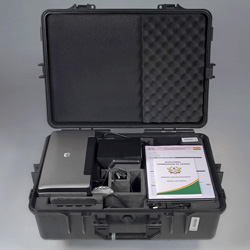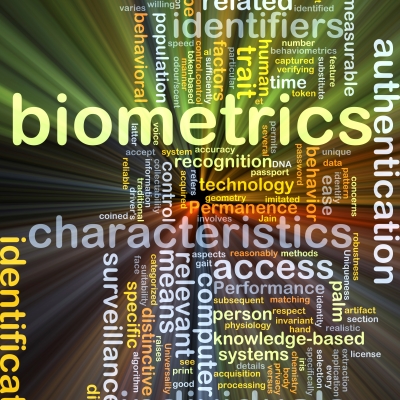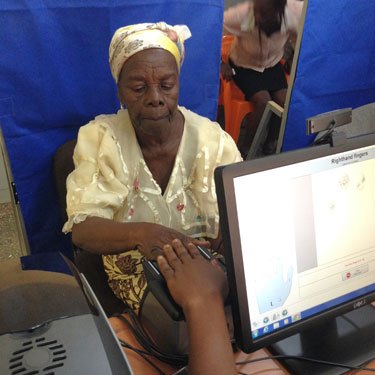Identify Households in Need
According to the World Bank more than 23% of the population of Djibouti lives in extreme poverty. The government tries to help the poor and improves their situation by the introduction of fair social inclusion programs. Social inclusion is the process of improving the terms on which individuals and groups take part in society. It is very difficult to define the households that need attention first. This problem is caused by the lack of identity of the persons of these households and the lack of a centralized social register.
Starting a Social Safety Net
Djibouti adopted a comprehensive social protection strategy in order to tackle the problem of poverty systematically. One main element is the establishment of a household register. This register starts by providing people a unique identity. A country wide door-to-door survey is executed . In this social survey social economic and personal information is collected. All this data will be validated and inserted in the register. The register is a social information management system where all data is organized and managed. This information management system classifies households based on poverty score. The poverty score is calculated using the Proxy Means Test (PMT) methodology.

Creating a Unique ID
People who are in desperate need of help are invited first to the registration office. In the registration office fingerprints (10) and face are added to the biographic information captured during the door-to-door survey. In the project up to 1 million people are to be registered and stored in a central database. The central fingerprint matching system (AFIS) avoids storage of duplicate identities. Every person gets a unique electronic ID. The beneficiaries can participate in social safety programs for financial aid, healthcare or other needs.
HSB has provided the complete social register including biometric registration equipment, central matching system (ABIS) for deduplication based on biometrics and a management information system (MIS). The web based enrolment portal can be used in both online and offline mode to make sure the process can continue in case of network unavailability.
This pioneering project is one of the first projects funded by the World Bank in an effort to help countries promote inclusive growth and achieve the Sustainable Development Goals.
Might be of interest:
Registration Solution
The Start of a unique ID using Biometric Registration Kits. Read More…
HSB identification has proven itself in designing flexible biometric solutions in ruggedized cases for registration, identification and verification purposes. Various solutions have been provided all over the world. The components in the biometric registration kits have survived harsh conditions, protected by aluminum and ABS cases.
HSB ABIS
Next Generation, Automated Biometric Identification System. Read More…
HSB ABIS is a next generation, multi-modal Automated Biometric Identification System. It serves as a storage and matching platform, to collect and search all kinds of biometric and personal data. It is part of the BioRegistrator® product suite. HSB ABIS is a flexible, open system with several innovations. It is used for verification, identification, de-duplication and forensic applications. The modern web based user interface makes deployment a breeze.
National Health ID
Preventing Fraud using a Biometric National Health ID. Read More…
The National Healthcare Insurance Agency in Ghana has a total membership of more than 8 million people. The current ID card is replaced by a biometric ID smart card. The goal of this project is to improve transparancy of the claim process and to reduce costs. This can be assured when only eligible clients will get their treatment and identity fraud is reduced.



